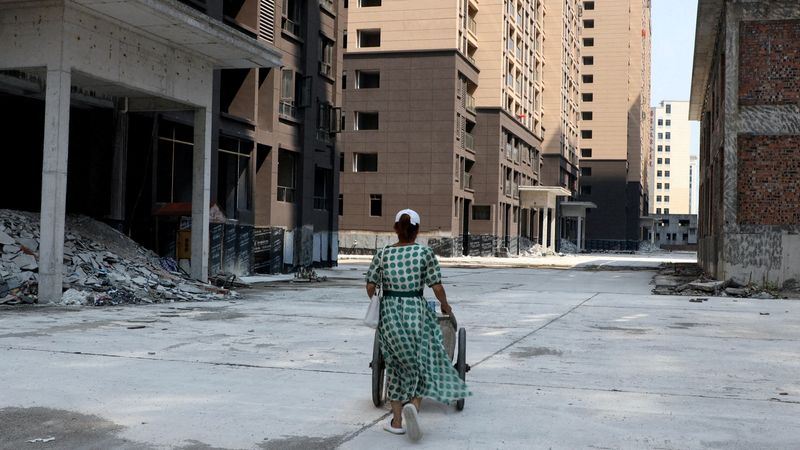BEIJING (Reuters) - China's property sector is expected to grapple with "persistent weakness" for years, Goldman Sachs (NYSE:GS) analysts said, adding that its problems would continue to drag on the country's economic growth.
Weaknesses are particularly pronounced in lower-tier cities and private developer financing, they said in a client note, adding that policymakers, who have vowed not to use the sector as a short-term lever to spur growth, seem keen for there to be less economic and fiscal reliance on the industry.
"As such, we only assume an 'L-shaped' recovery in the property sector in coming years," the note said.
China's property sector has over the past two years been thrust into a severe debt crisis - initially triggered by government moves to rein in ballooning debt - with many developers defaulting on payments as they struggle to sell apartments and raise funds.
Although local governments have rolled out hundreds of measures to support the sector, and the scrapping of harsh COVID curbs in December has helped somewhat, positive investor sentiment towards the sector has been short-lived.
"We believe the policy priority is to manage the multi-year slowdown rather than to engineer an upcycle," the note said, adding that it did not see a repeat of the 2015-18 cash-backed renovation program for poorer urban areas.
A shrinking land bank and sluggish property demand are likely to hamper the plans of a growing number of private Chinese developers who are restructuring their debt to revive their fortunes, developers and restructuring advisers have said.

Goldman Sachs said it expected more measures to support the sector, including a further easing in credit conditions for homebuyers, additional cuts to mortgage rates and mortgage down-payment ratios, as well as a further relaxation of restrictions on home purchases and resales in large cities.
A state-run newspaper last week urged patience amid market speculation of more stimulus for the sector.